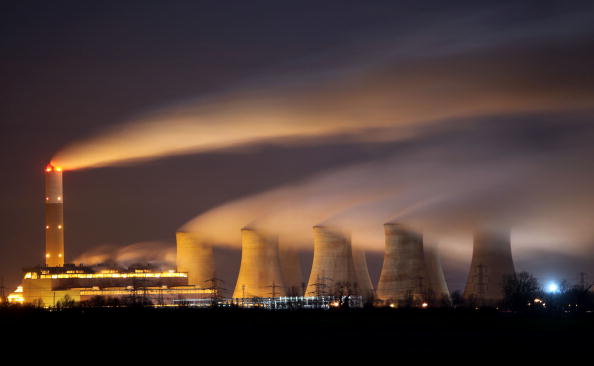What has replaced coal power in the UK?

Wind, solar and energy efficiency have replaced the vast majority of power previously provided by the UK’s coal fleet, a new analysis shows.
Since the start of the coalition government in 2010, coal’s role in the generation mix has fallen to historic lows, culminating in the country’s first coal-free day since the 19th century earlier this year.
But the gap has not been plugged by natural gas, the UK’s now primary source of electricity.
Renewables and energy efficiency* have together covered nearly 85% of the power the UK no longer gets from its coal plants.
Though gas power surged in 2016 as coal’s fall accelerated, and may yet rise still in the coming years, it is actually producing significantly less power than it was at the beginning of the decade.
Greenest government ever?
The UK’s electricity mix looks very different today than it did seven years ago, when the Conservatives first entered a coalition with the Liberal Democrats.
In 2010 fossil fuels were producing nearly 100TWh more power than they are now, while renewable generation more than tripled by 2016, according to official government stats compiled by Biofuelwatch.
Wind – mostly onshore, which the Conservatives now oppose – soared from 10.2TWh in the coalition’s first year to 37.5TWh last year.
Solar went from practically nothing at the beginning of the decade to more than 10TWh in 2016.
UK power demand also fell by 7% over that period, which is mostly down to energy efficiency — although it’s not exactly the same thing.
The country’s net electricity imports via interconnectors also went up sevenfold.
Biomass was next in covering for coal’s fall, but as Biofuelwatch stress its role is being vastly overstated by the industry, and some media outlets such as Forbes, which said earlier this year: Britain Has First Coalless Day Since 1880 – By Burning Even More Polluting Biomass Instead’
Meanwhile natural gas didn’t just fail as a coal power alternative, it fell alongside — though not nearly as much or as fast.
And it is rising again.
This was the generation mix of the coalition, with its web of subsidies for green and not-so green energy.
The rapid progress of solar and wind, however, has been halted since the Conservatives won a surprise majority in 2015, and gutted the very measures that was so successfully decarbonising Britain’s power sector.
Oil, nuclear and hydro stayed roughly the same between 2010-16
*energy efficiency calculated as reduction in electricity demand, which would make sense since the UK economy has been in a period of sustained growth

